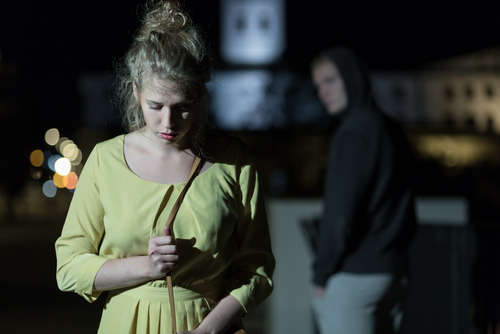South Africa shares the bottom four places with Afghanistan, Gabon, and Venezuela, in terms of feeling safe while walking home at night. Only 31% of South Africans feel safe, as opposed to 40% of Mexicans and Argentinians, and 84% of Canadians a...
25 July 2018 · Isabelle Coetzee

South Africa shares the bottom four places with Afghanistan, Gabon, and Venezuela, in terms of feeling safe while walking home at night.
Only 31% of South Africans feel safe, as opposed to 40% of Mexicans and Argentinians, and 84% of Canadians and Icelanders.
This is according to the Gallup Global Law and Order Report, which is based on 148,000 interviews with adults from 142 countries in 2017.
In the same year, over 2,231,420 crimes were committed in South Africa, of which 169,799 were classified as “assault with the intent to inflict grievous bodily harm”.
According to Jared Higgins, CEO of Secure Drive, the most committed crimes in South Africa include residential robberies, home invasions, and hijackings.
However, he explained that South Africans are not concerned with the most committed crimes, but rather the most feared crimes.
“The anxiety surrounding the above-mentioned crimes is that they could often lead to secondary crimes, such as rape,” said Higgins.
In addition to not feeling safe, South Africans are also sceptical about law enforcement, with only 58% feeling confident in their local police.
“They just don’t have enough resources to manage the current volume of crime in South Africa, and this is unlikely to change in the foreseeable future,” said Higgins.
Income inequality causes crime
With a rising Gini Coefficient of 0.95, South Africa is considered one of the most unequal countries in the world.
“When the poverty gap increases, the need for the poor to survive becomes greater, and crime escalates,” said Higgins.
READ MORE: Childhood violence leads to reduced salaries, inequality – researcher
From his experience, criminals progressively commit harsher crimes over time, starting with petty crimes and escalating to high-value offences.
To assist with their financial needs, criminals start small, partaking in non-contact crimes like pickpocketing and petty theft, said Higgins.
However, this can escalate as their needs increase, or if they believe the rewards of high-value crimes outweigh the consequences of being caught.
When criminals find themselves more comfortable accepting the risk-reward ratio, they could move towards harsher crimes, like smash-and-grabs, or more violent crimes.
“At this point, they often feel a false sense of security in their ability to beat the system and get away with their crimes,” said Higgins.
He explained that vehicle hijackings are lucrative, quick, and easy, as well as residential robberies and home invasions.
“Criminals earn more money from crime than they would in a relative job they qualify for at a company,” said Higgins.
Free tool

info@justmoney.co.za
4th Floor, Mutual Park, Jan Smuts Drive,
Pinelands, Cape Town, 7405
© Copyright 2009 - 2025 · Powered by NCRCB29
Terms & Conditions
·
Privacy Policy
·
PAIA Manual
View your total debt balance and accounts, get a free debt assessment, apply for a personal loan, and receive unlimited access to a coach – all for FREE with JustMoney.